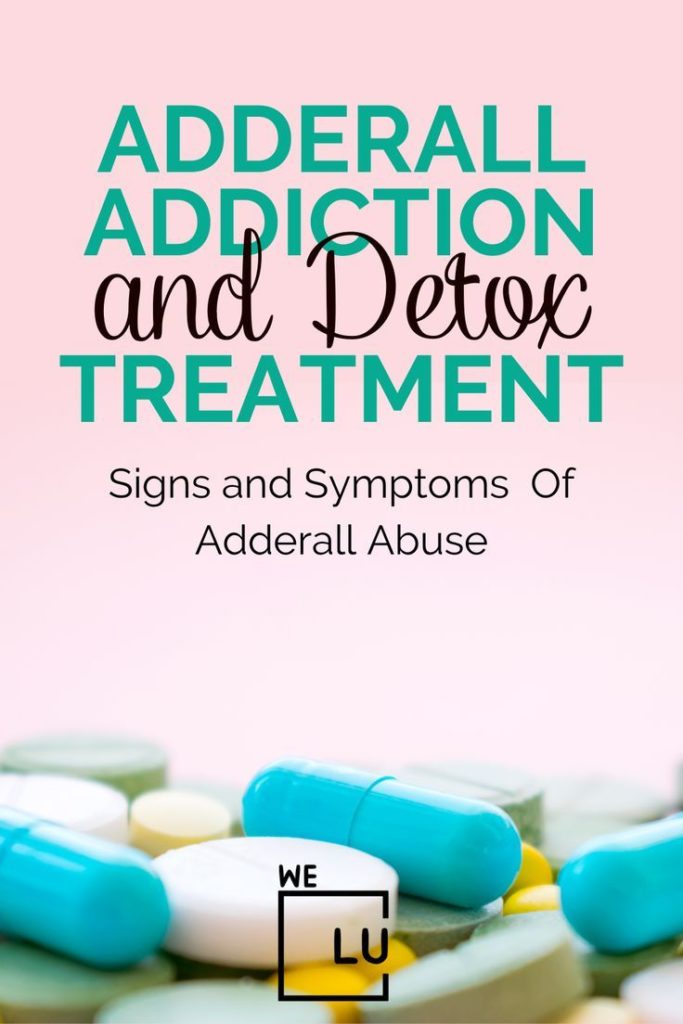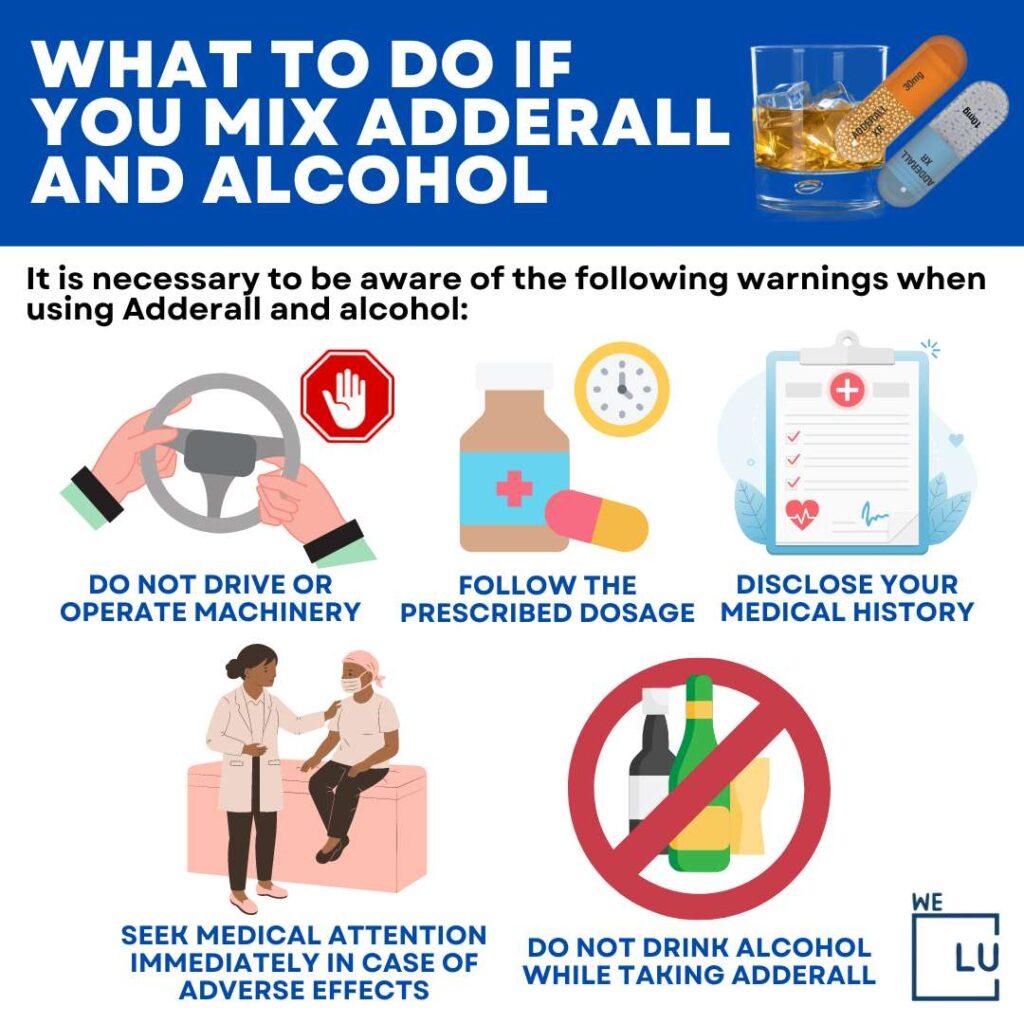Adderall Withdrawal
Struggling with ADHD? Adderall can help you stay focused and concentrated. This potent medication raises dopamine levels in your brain, enhancing your attention span. However, when you stop taking it, your dopamine levels decrease, and your body and mind need time to readjust. While taking occasional breaks from Adderall is generally okay, overuse can lead to noticeable effects upon discontinuation resulting in Adderall withdrawal symptoms.
Looking for help with substance abuse challenges like Adderall withdrawal? Join thousands of patients that trusted We Level Up for Adderall withdrawal and other substance abuse treatments. Call 24/7 for more Adderall rehab information today. Your call is free and confidential. Access addiction professionals who understand your circumstances and are ready to help.
What is Adderall Withdrawal?
Adderall withdrawal refers to the array of physical, emotional, and psychological symptoms that individuals may experience when they cease or significantly reduce their intake of Adderall, a prescription medication primarily used to treat attention-deficit hyperactivity disorder (ADHD) and narcolepsy.
Adderall comprises amphetamine and dextroamphetamine, which act as central nervous system stimulants, enhancing focus, attention, and impulse control. When someone has been using Adderall regularly and decides to stop taking it abruptly or gradually taper off, their body and brain undergo a period of adjustment as they adapt to functioning without the drug’s influence.
The withdrawal process can vary in intensity and duration depending on the individual’s dosage, use duration, overall health, and whether they are discontinuing Adderall under medical supervision. The symptoms can encompass physical discomfort, cognitive challenges, and emotional distress.
These may include fatigue, increased appetite, sleep disturbances, irritability, mood swings, depression, anxiety, and an overwhelming desire to use Adderall again to alleviate the discomfort. The withdrawal experience can be challenging and often prompts individuals to seek support from healthcare professionals, therapists, and specialized rehab centers to navigate this process safely and effectively.
Given the potential severity of Adderall withdrawal symptoms, it’s essential for those considering discontinuation to consult a medical professional who can guide them through a suitable tapering plan or recommend appropriate treatment options. In some cases, entering a rehab center could offer a structured and supportive environment where individuals receive comprehensive care tailored to their specific needs, enabling them to manage the challenges of Adderall withdrawal and pave the way toward a healthier, drug-free life.
Adderall Withdrawal Symptoms
Adderall withdrawal symptoms can vary widely from person to person, but they generally encompass a range of physical, emotional, and cognitive challenges. These symptoms arise as the body and brain adjust to the absence of the stimulant effects of Adderall. Some common withdrawal symptoms include:
- Fatigue and Lethargy: Many individuals experience a profound sense of tiredness and lack of energy. This can make it challenging to engage in daily activities and maintain productivity.
- Increased Appetite: Adderall is known to suppress appetite, so when it’s withdrawn, individuals often experience a surge in hunger and cravings for high-calorie foods.
- Sleep Disturbances: Disrupted sleep patterns are a common withdrawal symptom. Insomnia, vivid dreams, and difficulty falling asleep or staying asleep can occur.
- Mood Swings: Emotional instability is prevalent during withdrawal. Individuals may experience mood swings, irritability, heightened sensitivity, and even episodes of anger or frustration.
- Depression: Withdrawal from Adderall can trigger feelings of sadness, hopelessness, and a lack of interest in activities that were once enjoyable. Some individuals may even experience clinical depression.
- Anxiety: Anxiety levels can increase during withdrawal, leading to feelings of restlessness, nervousness, and unease.
- Difficulty Concentrating: Since Adderall is known for enhancing focus and attention, withdrawing from the medication can lead to difficulties concentrating and thinking clearly.
- Cravings: A strong desire to use Adderall again can be a significant challenge during withdrawal. Cravings can be intense and may contribute to relapse if not managed effectively.
- Physical Discomfort: Some individuals experience headaches, muscle aches, and general discomfort during withdrawal.
- Low Energy: Withdrawal from a stimulant like Adderall can result in feelings of low energy and motivation, making it challenging to engage in daily tasks.
The severity and duration of these withdrawal symptoms can vary based on factors such as the individual’s usage history, dosage, and overall health. Additionally, withdrawing from Adderall abruptly can often lead to more intense and prolonged withdrawal symptoms than gradually tapering off the medication under medical supervision.
Given the potential challenges of Adderall’s withdrawal, seeking professional guidance and support is recommended. Medical professionals, therapists, and the We Level Up Adderall rehab centers can assist in managing these symptoms and developing strategies for a successful withdrawal journey.
Get addiction counseling that works. Discover professional help from We Level Up’s addiction and mental health therapists. Start getting support with a free call to our addiction hotline.

Skip To:
Learn More:
- Adderall vs Meth: What’s the Difference?
- Why Is Adderall Addictive? Signs, Symptoms, Drug Abuse Rehab
- Adderall and Sex Drive Connection, Side Effects, Addiction Treatment
- Adderall Vs Modafinil
- Adderall and Viagra
- Adderall Erectile Dysfunction
- Modafinil Vs Adderall Stimulant Effects & Differences
- Adderall With Phenibut
- Snorting Adderall, Why, Signs & Risks of Adderall Snort. Can You Sniff Adderall & What Happens?
- Adderall as a Party Drug
- Mixing Adderall and Alcohol, Risks, Amphetamine And Dextroamphetamine Effects & What To Do
Get Help. Get Better. Get Your Life Back.
Searching for Accredited Drug and Alcohol Rehab Centers Near You?
Even if you have failed previously and relapsed, or are in the middle of a difficult crisis, we stand ready to support you. Our trusted behavioral health specialists will not give up on you. When you feel ready or just want someone to speak to about therapy alternatives to change your life call us. Even if we cannot assist you, we will lead you to wherever you can get support. There is no obligation. Call our hotline today.
(844) 597-1011Featured We Level Up Treatment Centers Adderall Detox & Rehab Treatment
Overcoming Adderall withdrawal can be challenging and lonely. Many people struggle to quit independently and often relapse to alleviate their symptoms or satisfy their cravings.
However, with We Level Up’s therapy and a robust support system, you can experience a more manageable withdrawal and successful recovery. If you require assistance with rehab, don’t hesitate to contact a treatment advocate 24/7.

We Level Up New Jersey
Drug & Alcohol Addiction Treatment Center w/Detox
Licensed & Accredited w/ 5-star reviews.- Inpatient addiction rehab center w/medical detox
- Addiction treatment and detox for alcohol, benzo, heroin, opioid, and more.
- Secondary mental health treatment available as part of our dual diagnosis programs.

We Level Up Washington
Premier Behavioral Health Treatment Center
Licensed & Accredited w/ 5-star reviews.- Inpatient mental health treatment center
- Therapy for depression, anxiety, trauma, bipolar disorder, PTSD, and more.
- Dual diagnosis rehab programs available

We Level Up California
Drug & Alcohol Addiction Treatment Center w/Detox
Licensed & Accredited w/ 5-star reviews.- Inpatient addiction rehab center w/medical detox
- Addiction treatment and detox for alcohol, benzo, heroin, opioid, and more.
- Secondary mental health treatment available as part of our dual diagnosis programs.
View more We Level Up treatment centers.
Popular Adderall Withdrawal FAQs
-
Are There Side Effects Of Adderall Withdrawal?
Yes, there are several side effects associated with Adderall withdrawal. When someone stops taking Adderall, their body and brain must readjust to functioning without the drug’s influence. Common side effects of Adderall withdrawal include fatigue, increased appetite, sleep disturbances, mood swings, irritability, depression, anxiety, and difficulties with concentration.
These side effects can vary in intensity and duration depending on the individual’s dosage, duration of use, and overall health. It’s important to note that seeking medical guidance and support during withdrawal can help mitigate these side effects and make the process more manageable.
Why Is Mixing Drugs With Alcohol Dangerous?
Mixing drugs with alcohol can be dangerous for several reasons:
- Increased risk of side effects: Alcohol can interact with drugs and potentiate their effects, leading to an increased risk of side effects. This can include drowsiness, dizziness, impaired coordination, slowed breathing, and difficulty concentrating.
- Decreased medication effectiveness: Alcohol can reduce the effectiveness of certain medications, rendering them less useful in treating the intended condition. It can interfere with the drug’s absorption, metabolism, and elimination from the body.
- Negative impact on organs: Both alcohol and certain drugs can harm organs such as the liver and kidneys. Combining them can put additional stress on these organs and increase the risk of liver damage, kidney problems, and other complications.
- Increased intoxication: Mixing alcohol with certain drugs, especially sedatives or opioids, can intensify the depressant effects on the central nervous system. This can result in severe drowsiness, impaired judgment, slowed reaction times, and an increased risk of accidents or overdose.
- Potential for unpredictable reactions: The combination of drugs and alcohol can have unpredictable interactions. It may lead to unexpected side effects, adverse reactions, or life-threatening symptoms. Each person’s body chemistry and tolerance can vary, making the outcome of mixing drugs with alcohol challenging to predict.
These risks can vary depending on the specific drugs involved, the dosage, individual factors, and the overall health condition of an individual. It is always recommended to consult with a healthcare professional for specific advice regarding the safe use of medications and alcohol.
Why Is Mixing Drugs With Alcohol Dangerous Chart
| Drugs and Alcohol | Explanation |
|---|---|
| Adderall and Alcohol | Mixing Adderall, a stimulant, with alcohol can increase the risk of heart problems, increased blood pressure, and potential overdose. It can also mask the effects of alcohol, leading to excessive drinking and alcohol poisoning. |
| Alcohol and Adderall | Combining alcohol with Adderall can increase the risk of heart problems, high blood pressure, and overdose. It may also lead to excessive drinking due to Adderall’s stimulant effects, masking the sedative effects of alcohol. |
| Alcohol and Ibuprofen | Combining alcohol and ibuprofen can increase the risk of stomach bleeding and liver damage. Both alcohol and ibuprofen are known to irritate the stomach lining, and their combined use can intensify these effects. |
| Ibuprofen and Alcohol | Mixing ibuprofen with alcohol can increase the risk of stomach bleeding and liver toxicity. Both substances can cause irritation to the stomach lining, and combining them can exacerbate this harm. |
| Advil and Alcohol | Similar to ibuprofen, combining Advil (which contains ibuprofen) and alcohol can increase the risk of stomach bleeding and liver damage. The effects are the same as mixing ibuprofen and alcohol. |
| Ibuprofen with Alcohol | Combining ibuprofen with alcohol can result in an increased risk of stomach bleeding and liver toxicity. Both substances have the potential to harm the stomach lining, and using them together can worsen these effects. |
| Will Ibuprofen and Alcohol Kill You | Mixing ibuprofen and alcohol might not directly cause death, but it can increase the risk of severe health problems such as stomach bleeding, liver damage, and other complications. These complications, if left untreated, can be life-threatening. It is important to avoid combining them. |
| Alcohol and Kidney Stones | Alcohol can increase the risk of kidney stone formation by promoting dehydration and interfering with kidney function. It is advisable to drink alcohol in moderation or avoid it altogether if you have a history of kidney stones. |
| Is Beer Bad for Kidneys | Consuming beer in moderation is generally considered safe for most individuals. However, excessive alcohol consumption, including beer, can lead to dehydration, harm kidney function, and exacerbate existing kidney conditions. |
| Amoxicillin and Alcohol | Combining amoxicillin, an antibiotic, with alcohol can increase the risk of unexpected side effects, reduce the effectiveness of the medication, and impair liver function. It is best to avoid alcohol while taking this medication. |
| Alcohol and Amoxicillin | Consuming alcohol while taking amoxicillin can lead to heightened side effects, reduced efficacy of the antibiotic, and potentially harm liver function. It is advisable to refrain from alcohol during amoxicillin treatment. |
| Can You Drink on Amoxicillin | It is recommended to avoid alcohol while taking amoxicillin. Drinking alcohol can reduce the effectiveness of the antibiotic, increase the risk of side effects, and potentially harm liver function. |
| Azithromycin and Alcohol | Mixing azithromycin, an antibiotic, with alcohol can increase the likelihood of side effects, such as nausea, vomiting, dizziness, and gastrointestinal upset. It is best to abstain from alcohol while taking this medication. |
| How Long After Taking Azithromycin Can You Drink Alcohol | It is generally advisable to wait at least 48-72 hours after completing a course of azithromycin before consuming alcohol. This time frame allows your body to fully process the medication and minimize potential interactions. However, it is always best to consult a healthcare professional for specific guidance. |
| Bac Cal | “Bac Cal” can help determine your alcohol level before you consider combining drugs with alcohol. |
| Bac Calculator | A Bac Calculator is a tool used to estimate a person’s blood alcohol concentration (BAC) based on various factors, such as body weight, gender, alcohol consumed, and time elapsed since consumption. It is used to assess a person’s level of alcohol intoxication. |
| Bactrim and Alcohol | Combining Bactrim, an antibiotic, with alcohol can increase the risk of side effects such as nausea, vomiting, rapid heart rate, and flushing. It is generally recommended to avoid alcohol while taking this medication. |
| Can You Drink on Bactrim | It is advisable to avoid alcohol while taking Bactrim. Mixing the antibiotic with alcohol can lead to increased side effects, including gastrointestinal distress, rapid heart rate, and flushing. |
| Alcohol and Bactrim | Drinking alcohol while taking Bactrim can heighten the risk of side effects, including nausea, vomiting, rapid heart rate, and flushing. It is best to refrain from alcohol during Bactrim treatment. |
| Effexor and Alcohol | Combining Effexor, an antidepressant, with alcohol may intensify the sedative effects of both substances and increase the risk of drowsiness, dizziness, and impaired coordination. It is advisable to avoid alcohol while taking Effexor. |
| Hangxiety | Hangxiety refers to the feeling of anxiety or unease that some individuals experience after drinking alcohol, especially during or after a hangover. It may be a result of alcohol’s impact on the brain and body, including dehydration and chemical imbalances. |
| How to Get Rid of Hangxiety | To address hangxiety, it is important to practice self-care, such as staying hydrated, getting enough sleep, eating a balanced diet, exercising regularly, and managing stress. If symptoms persist or worsen, it is recommended to consult a healthcare professional for personalized advice. |
Adderall Drug Facts
Adderall Abuse Overview
Adderall is a prescription medication commonly used to treat Attention Deficit Hyperactivity Disorder (ADHD) and Narcolepsy. However, Adderall is also a highly abused drug due to its stimulant effects that can increase focus, energy, and productivity. Individuals who abuse Adderall often take the drug in larger doses than prescribed, more frequently than prescribed, or without a prescription.
Adderall Abuse Effects
Adderall abuse can negatively affect an individual’s physical and mental health. Short-term effects of Adderall abuse can include loss of appetite, insomnia, anxiety, agitation, and increased heart rate and blood pressure.
Long-term abuse of Adderall can lead to severe health problems such as addiction, cardiovascular damage, seizures, and psychosis. Additionally, Adderall abuse can cause relationship difficulties, academic or job performance problems, and legal issues. It is crucial to seek help for Adderall abuse to prevent these negative effects and promote long-term health and well-being.
Adderall Abuse Treatment
- Treatment for Adderall abuse usually involves a combination of therapy, support groups, and medication management.
- Detoxification is often the first step in treating Adderall abuse and involves managing withdrawal symptoms as the drug is slowly removed from the body.
- Behavioral therapy, such as cognitive-behavioral therapy (CBT), can help individuals identify and change negative patterns of thinking and behavior that contribute to substance abuse.
- Support groups like 12-step programs like Narcotics Anonymous can provide valuable support and accountability during recovery.
- Medications may be used to help manage withdrawal symptoms and cravings, as well as treat underlying mental health conditions that contribute to substance abuse.
- Aftercare programs, such as continued therapy and support groups, can help individuals maintain their recovery and prevent relapse.
Adderall Abuse Statistics
Adderall abuse is a growing problem in many parts of the world. According to recent studies and reports, Adderall abuse has increased among young adults, college students, and professionals seeking to enhance their academic or work performance. These statistics highlight the need for greater awareness and prevention efforts to address the negative consequences of Adderall abuse.
6.4%
Approximately 6.4% of Americans aged 18-25 reported misusing prescription stimulants like Adderall in 2020.
Source: National Survey on Drug Use and Health
220%
Emergency department visits related to nonmedical use of prescription stimulants, including Adderall, increased by 220% between 2006 and 2011.
Source: Journal of Clinical Psychiatry
20%
20% of college students reported using Adderall without a prescription, with the primary motivation being to improve academic performance.
Source: Partnership for Drug-Free Kids

Get Your Life Back
Find Hope & Recovery. Get Safe Comfortable Detox, Addiction Rehab & Dual Diagnosis High-Quality Care.
Hotline(844) 597-1011It’s essential to approach the Adderall withdrawal journey with patience and understanding, as well as under the guidance of a healthcare professional. We Level Up treatment centers can provide tailored advice, support, and potential strategies to manage the challenges that may arise throughout the withdrawal process. Seeking professional help is crucial, especially if withdrawal symptoms are severe or distressing. Call us today for a free consultation and insurance check.

Adderall Withdrawal Timeline
The Adderall withdrawal timeline encompasses the sequence of physical, emotional, and cognitive changes that individuals may undergo when they discontinue or significantly reduce their use of Adderall. While the exact timeline can vary widely from person to person due to factors such as dosage, duration of use, and individual physiology, a general overview of the withdrawal process can be outlined.
How Long Does Adderall Withdrawal Last?
- Initial Days (1-2 Days): During the first couple of days after the last dose of Adderall, individuals might experience an array of initial withdrawal symptoms. These can include extreme fatigue and lethargy as the body adapts to the absence of the stimulant effects. Additionally, a surge in appetite often occurs as the appetite-suppressing effects of Adderall diminish. Mood swings and irritability might manifest due to the disruption in neurotransmitter balance.
- Early Phase (3-5 Days): As the initial day progress, withdrawal symptoms may intensify. Heightened cravings for Adderall can lead to psychological discomfort. Sleep disturbances such as insomnia or vivid dreams can be expected, and emotional challenges like depression and anxiety might become more pronounced. These emotional symptoms often arise due to the abrupt drop in dopamine and other neurotransmitter levels that Adderall typically elevates.
- First Weeks (1-2 Weeks): Moving into the first weeks of withdrawal, mood swings and irritability might persist. Low energy levels and difficulties concentrating can be notable during this period. The brain is working to recalibrate its neurotransmitter production and reception, which can lead to these cognitive and emotional fluctuations.
- Mid-Phase (2-4 Weeks): Gradually, the emotional and cognitive symptoms might improve. The mood becomes more stable, and energy levels might rise as the body begins to find equilibrium without the constant influence of Adderall. Cravings may begin to subside, although they can still be present.
- Later Weeks (1-3 Months): Most physical symptoms tend to resolve within the first few months of withdrawal. Emotional stability improves, and individuals often experience a more stable mental state. While the occasional craving might arise, the intensity and frequency typically diminish over time.
- Beyond Three Months: As time progresses beyond the three-month mark, individuals usually observe a gradual return to their baseline functioning. Cravings, if present, are sporadic and less overpowering. It’s essential to recognize that some psychological and emotional adjustments can continue for an extended period, especially for individuals who were on higher doses of Adderall or who have pre-existing mental health conditions.
First-class Facilities & Amenities
World-class High-Quality Addiction & Mental Health Rehabilitation Treatment
Rehab Centers TourRenowned Addiction Centers. Serene Private Facilities. Inpatient rehab programs vary.
Addiction Helpline(844) 597-1011Proven recovery success experience, backed by a Team w/ History of:
15+
Years of Unified Experience
100s
5-Star Reviews Across Our Centers
10K
Recovery Success Stories Across Our Network
- Low Patient to Therapist Ratio
- Onsite Medical Detox Center
- Comprehensive Dual-Diagnosis Treatment
- Complimentary Family & Alumni Programs
- Coaching, Recovery & Personal Development Events
Overcoming Adderall Withdrawal: Find the Support You Need
Withdrawal from Adderall is often a challenging process to go through alone. Many people experience relapses during withdrawal in an attempt to alleviate symptoms and satisfy cravings. However, you can manage withdrawal symptoms and successfully recover with detox and rehab therapy and a robust support system at the We Level Up treatment centers. If you require assistance with your rehab journey, contact a We Level Up treatment professional now. Your call is free and confidential.
Get a free rehab insurance check without any obligation.
Can You Die While You Withdraw From Adderall?
While Adderall withdrawal can be uncomfortable and challenging, it is generally not associated with life-threatening risks. However, it’s important to note that abrupt discontinuation of high doses of Adderall or other amphetamines can lead to severe emotional and psychological distress, which might indirectly contribute to certain risks.
In rare cases, individuals already vulnerable to specific mental health issues, such as depression or anxiety, might experience exacerbated symptoms during withdrawal. This could potentially lead to thoughts of self-harm or suicide. It’s crucial to prioritize your mental and emotional well-being during this period.
If you or someone you know is experiencing severe psychological distress, including thoughts of self-harm or suicide, seek immediate medical help. Mental health professionals and medical providers can offer appropriate support and interventions to ensure safety.

When withdrawing from Adderall or any other substance, it’s recommended to do so under the guidance of a healthcare professional. They can help you develop a safe and effective tapering plan, monitor your physical and emotional well-being, and address any concerns arising. If you’re considering discontinuing Adderall, consult a healthcare provider to discuss your intentions and develop a plan that suits your situation.
World-class, Accredited, 5-Star Reviewed, Effective Addiction & Mental Health Programs. Complete Behavioral Health Inpatient Rehab, Detox plus Co-occuring Disorders Therapy.
CALL(844) 597-1011End the Addiction Pain. End the Emotional Rollercoaster. Get Your Life Back. Start Drug, Alcohol & Dual Diagnosis Mental Health Treatment Now. Get Free No-obligation Guidance by Substance Abuse Specialists Who Understand Addiction & Mental Health Recovery & Know How to Help.
Do you have questions about Adderall withdrawal or treatment in general? Call our helpline 24/7.
We Level Up Adderall Withdrawal Dual Diagnosis Treatment
Welcome to We Level Up Treatment Center, where we are dedicated to providing comprehensive and compassionate care for individuals seeking Adderall Withdrawal Dual Diagnosis Treatment. Our specialized program addresses the unique challenges of Adderall withdrawal and co-occurring mental health conditions. Here are the services we offer to support your journey toward healing and recovery:
- Medical Detoxification: Our experienced medical team will oversee your safe and comfortable detoxification process. We will carefully manage withdrawal symptoms, ensuring your physical well-being as your body adjusts to the absence of Adderall.
- Dual Diagnosis Assessment: We recognize the interplay between substance use and mental health. Our skilled clinicians will conduct a thorough assessment to identify co-occurring disorders, providing a foundation for personalized treatment planning.
- Individualized Treatment Plans: Based on your unique needs, we will create a tailored treatment plan that addresses Adderall withdrawal and any underlying mental health conditions. Our holistic approach considers your physical, emotional, and psychological well-being.
- Therapeutic Interventions: Our evidence-based therapies, including cognitive-behavioral therapy (CBT), dialectical behavior therapy (DBT), and trauma-informed approaches, will empower you to develop coping skills and strategies for managing cravings, triggers, and emotional challenges.
- Group Therapy: Engage in supportive group therapy sessions to connect with peers facing similar struggles. Group settings provide a space for sharing experiences, fostering empathy, and building community.
- Medical and Psychiatric Care: Our medical and psychiatric professionals will closely monitor your progress, addressing any underlying mental health issues through medication management and therapeutic support.
- Holistic Healing: Embrace a balanced approach to healing with our holistic offerings, including mindfulness practices, yoga, meditation, and recreational activities. These activities promote self-care, stress reduction, and emotional well-being.
- Nutritional Support: Our nutrition experts will guide you on maintaining a balanced diet during recovery, which can significantly enhance your physical and emotional resilience.
- Aftercare Planning: As you near the end of your program, we will work collaboratively to create a robust aftercare plan that supports your continued recovery. This might include outpatient therapy, support groups, and resources to help you maintain your progress.
- Family Involvement: We understand the importance of a robust support system. Family therapy and education will help loved ones better understand addiction, withdrawal, and mental health, fostering a healthier family dynamic.
At We Level Up Treatment Center, we are committed to guiding you toward lasting recovery from Adderall withdrawal and co-occurring conditions. Our multidisciplinary team is here to provide unwavering support, guidance, and personalized care every step of the way. Let’s embark on this transformative journey together.
Experience Transformative Recovery at We Level Up Treatment Centers.
See our authentic success stories. Get inspired. Get the help you deserve.
Start a New Life
Begin with a free call to an addiction & behavioral health treatment advisor. Learn more about our dual-diagnosis programs. The We Level Up Treatment Center Network delivers recovery programs that vary by each treatment facility. Call to learn more.
- Personalized Care
- Caring Accountable Staff
- World-class Amenities
- Licensed & Accredited
- Renowned w/ 100s 5-Star Reviews
We’ll Call You
Watch The Prescription Drug Addiction Informative Video
Video Script
Joey’s Opiates, Drugs, and Alcohol Addiction Recovery Story
Joey’s story is a poignant reminder of the problematic reality of addiction. Despite facing many challenges after losing his child, Joey has made remarkable progress toward sobriety. Seeking help for his addiction was a pivotal moment for Joey, and he deserves all the necessary support to continue his path toward recovery.
Search We Level Up Adderall Withdrawal Resources
Sources
- National Institute on Drug Abuse (NIDA) – https://www.drugabuse.gov/drug-topics/prescription-stimulants/adderall-addiction
- Substance Abuse and Mental Health Services Administration (SAMHSA) – https://www.samhsa.gov/
- Centers for Disease Control and Prevention (CDC) – https://www.cdc.gov/
- U.S. Food and Drug Administration (FDA) – https://www.fda.gov/
- U.S. Department of Health and Human Services (HHS) – https://www.hhs.gov/
- National Institutes of Health (NIH) – https://www.nih.gov/
- Substance Abuse and Mental Health Services Administration (SAMHSA) – https://www.samhsa.gov/find-help/national-helpline
- U.S. Drug Enforcement Administration (DEA) – https://www.dea.gov/
- National Library of Medicine – https://medlineplus.gov/druginfo/meds/a601234.html
- National Council on Alcoholism and Drug Dependence (NCADD) – https://www.ncadd.org/about-addiction/addiction-update/adderall-and-addiction-what-you-need-to-know


